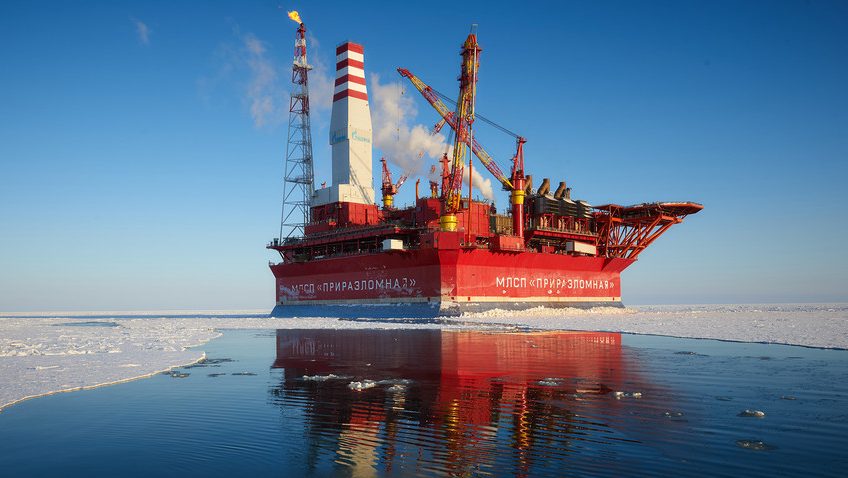In a recent move by Estonia’s President Kersti Kaljulaid, the country will no longer purchase electricity directly from Russia. Estonia will also pursue consensus among EU member states towards a pollution tax on Russian electricity entering the single market.
In a recent interview with BNS, President Kaljulaid said that Estonia is opting to purchase electricity from the “Nordic Pool”. The Estonian president recognizes the presence of Russian electricity present in the Nord Pool market. However, the goal for Estonia is to eliminate direct electricity purchases from Russia entirely.
“… Estonia is not buying electricity from Russia through any of our nine connections to Russia,” said President Kaljulaid to BNS.
Baltic EU member states have already agreed to withdraw from the BRELL agreement between Belarus, Russia, Estonia, Latvia, and Lithuania. The purpose of this withdrawal is to desynchronize from Russian and Belarusian energy systems to better integrate into the EU’s energy networks.
A critical issue for Estonia is the cheaper Russian and Belarusian electricity that is dumped into the market and not subject to EU emission taxes. The Republic of Estonia Competition Authority in its 2018 report found that from the electricity imported into the Baltics, Russian electricity alone made up over 56%.
In the report, the Estonian Competition Authority outlines plans from 2025 to phase out electricity trade between the Baltics and Russia. Russian electricity will still enter the EU energy market via Finland where a “network use charge” will be instituted for its use.
This consumption of dumped Russian and Belarusian electricity conflicts with the EU’s long-term strategy to reach carbon neutrality by 2050. The goal of the 2050 strategy is to move away from the usage of “dirty” energy production linked to nuclear and coal-fired plants.
European Commission President Ursula von der Leyen has already threatened an added CO2 tax added to energy entering the single market in order to prevent dumping.
Baltic EU-member states have the lowest level of integration into European energy networks and a high dependence on energy resources from third countries. This is an immense threat to Baltic energy security which is under the thumb of highly politicized Russian energy policies.
EU level efforts have devoted hundreds of millions of Euros in order to successfully initiate the integration of the Baltic energy market into Europe via the Baltic Energy Market Interconnection Plan and Finland and the Gas Interconnection Poland Lithuania.
EU Energy Commissioner Kadri Simson has publicly called for a solution at the European level to thwart the dumping of unsafe and dirty electricity. According to Simson, 75% of Russian electricity production is nuclear and 25% of its generation comes from coal-fired plants.
By divesting from the Russian electricity grid and transitioning to the Central European electricity grid, Baltic states are making individual efforts to decrease their dependency on Russian energy and diversify their energy resources in the interest of security.
Russia’s nuclear industry serves as a powerful political tool by creating energy dependency in countries like Belarus and some EU member states to the state-funded Rosatom corporation.
According to The New York Times, Rosatom, the Russian state nuclear energy corporation, is directly connected to Gazprom and Rosneft. Gazprom, a state-controlled multinational natural gas corporation, and Rosneft, a state-owned petroleum company, in connection to Rosatom exist as a powerful energy arm to keep former Soviet satellite states in the Russian sphere of influence.
Before selling its shares due to the 2014 regulatory requirements established by the European Commission, Gazprom owned a significant stake in the natural gas markets of the Baltic States.
According to Simon Holerbaur of FPRI, Gazprom owned 37% of Estonia’s Eesti Gaas, 34% of Latvia’s Latvias Gāze, and 37% of Lithuania’s Lietuvos Dujo.
At the supranational level, the EU as a whole continues to still be largely reliant on Russian gas. The European Parliament notes that Russia is the main supplier of crude oil, natural gas, and solid fossil fuels to the EU. In 2018 30% of the extra-EU’s crude oil imports were from Russia. In the same year, the EU imported 40% of its natural gas and 42% of its solid fuel came from Russia.
In the short-term, the EU will remain reliant on Russian energy due to the volume of available Russian energy to meet critical EU energy needs, its geographical proximity, and the convenience of existing infrastructure to support the usage of Russian energy.
“… when we move away from the BRELL network… to the Central European grid, nobody will invest into the back-to-back converters necessary to keep buying electricity from Russia…”, said President Kaljulaid
In the long-term, it is critical for Baltic states and the EU to diversify their energy resources to better ensure overall continental security. It is not in the interest of the EU as global political and economic power to be locked into Russian energy dependency. Further dependency can result in serious political, economic, and security ramifications in the future as Russia further attempts to express and expand its energy might.
While any immediate severance of Russian energy supply is both unrealistic and detrimental to the European energy market, the EU needs to determine the most beneficial and strategic way to meet their energy needs from Russia while also committing to their environmental goals as set out by the 2050 plan.
Inversely, Russia must determine the best way to adapt to the EU’s energy strategy as their current system of production is soon to be outdated and incongruent with the future technological developments of the EU energy market.


0 comments